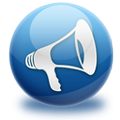WITH Foundation, AADMD, and Ability Central Awards More than $478,000 to Foster Supported Decision-making for AAC Users
February 6, 2020

|
The WITH Foundation, the American Academy of Developmental Medicine and Dentistry (AADMD) and Ability Central are pleased to announce that more than $478,000 will be awarded to five organizations as a result of their joint RFP. These grants will fund programs focused on the development of resources, programmatic models, and/or advocacy related to Supported Decision-Making (SDM) for adults with intellectual and developmental disabilities who use Augmentative and Alternative Communication (AAC). Applicants were encouraged to develop new partnerships or significantly enhance existing partnerships between disability organizations, advocates, community organizations, and healthcare providers.
"These projects will not only benefit adults with I/DD who use AAC, but the projects are led by or have meaningful involvement from individuals with lived experience of AAC use. The work that these organizations are doing to make SDM available for all adults with I/DD is vital." said Ryan Easterly, Executive Director of the WITH Foundation.
"Ability Central Philanthropy is thrilled to partner with the WITH Foundation to support these Supported Decision Making (SDM) and Augmentative and Alternative Communication (AAC) projects in California and nation-wide," said James Gilroy, Chairman of the Board of Ability Central. "We believe the ability to communicate is both a basic human right and the means by which all other rights are realized. SDM is the area of overlap of our foundations' missions: access to health care (WITH) and access to communication & information (Ability Central). We are excited about the proposed resources, collaboration and advocacy efforts and look forward to seeing their impact."
The following projects were selected for funding:
Communication First
Assuring Better Communication for Deciding Together Initiative (ABCD) will
convene a national panel of thought leaders with personal and professional experience in augmentative and alternative communication (AAC), cultural competence, shared healthcare decision-making and supported decision-making for persons with IDD to develop a clear vision and recommendations. Engaging Temple University's ACES program as a proving ground for ideas and recommendations, the initiative will develop and disseminate resulting tools, including an advocacy video toolkit, a whitepaper on rights, policy, and best practices, and tips for effectively communicating and making informed decisions in healthcare settings.
Disability Voices United
The Supported Decision-Making California Advocacy Project brings together key stakeholders led by self-advocates and family members to develop a set of SDM principles, particularly for those using augmentative and alternative communication. These principles will serve as a catalyst for advocacy to adopt these practices in the healthcare, legal, and other systems in order to reduce reliance on conservatorships and set out SDM as a preference. Disability Voices United will conduct these efforts through a dual approach of peer-to-peer outreach and "SDM Storytelling" by self-advocates who use ACC. The project will include the creation of an SDM Interchange website to share information and promote dialog.
Oregon Health and Science University Foundation
Speak My Language! Using visual symbols for supported decision making by people who use AAC is a partnership with the UCEDD at Oregon Health & Science University (OHSU) and the Community Vision - Assistive Technology Lab. The project will work to develop educational tools, symbol-based Patient Decision Aids for Supported Decision Making (PDAs for SDM) for adults with I/DD who use AAC with limited literacy skills. The partnership will conduct focus groups with AAC users about symbol and literacy needs for informed consent and health topics, develop symbol-based PDAs for SDM, evaluate their use in a hospital clinic and a community-based clinic that serve AAC users and widely disseminate the products through a web-based resource hub and provider trainings.
University of California, San Francisco's Office of Developmental Primary Care
This project will engage self-advocate leaders who use Augmentative and Alternative Communication (AAC), their supporters and thought leaders from organizations promoting Supported Decision-Making (SDM) in a collaborative effort to develop a process guide. The guide will offer pragmatic advice on managing ethical challenges, uncertainty, and logistical issues that commonly arise when applying SDM principles to informed consent for AAC users in health care settings. The guide will be grounded in the Office of Developmental Primary Care's experience with diverse populations of AAC users in inpatient, outpatient, and long-term care settings across California.
University of Kentucky's Human Development Institute
My choice Kentucky: Making Decisions in Dental Care will create materials to enhance the dental care of people with intellectual and developmental disabilities (IDD) who use Augmentative and Alternative Communication (AAC). These materials will include videos and symbol sets that will improve communication and understanding for all parties- AAC users, their supporters and dental professionals. Additionally, the materials will facilitate the use of SDM in dental care. This project will also forge a new partnership between the UK Human Development (HDI) and the UK College of Dentistry.
# # #
RFP Funding Partners:
- WITH Foundation promotes comprehensive and accessible healthcare for adults with developmental disabilities.
- Ability Central makes grants to improve communication and information access for people with disabilities.







